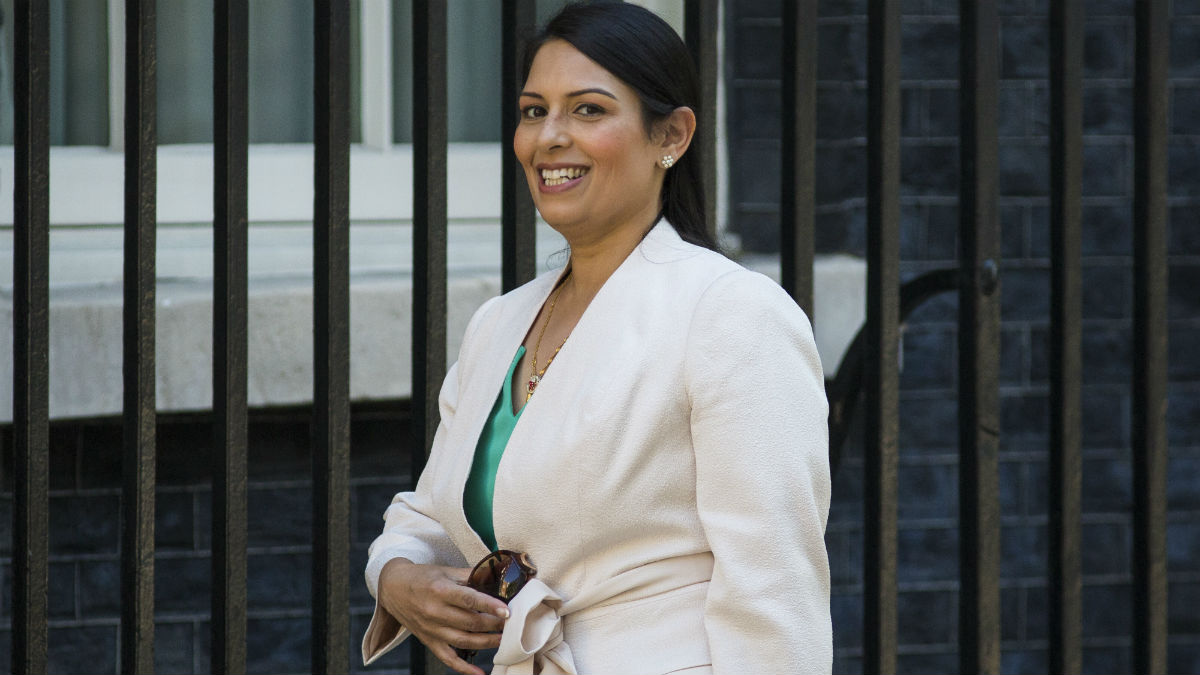UK to 'leverage' £12bn foreign aid budget for trade deals
Priti Patel to use meetings with foreign leaders whose countries receive help as way to sign new agreements

A free daily email with the biggest news stories of the day – and the best features from TheWeek.com
You are now subscribed
Your newsletter sign-up was successful
The UK will "leverage" its £12bn foreign aid budget to build new trade deals as it exits the European Union, says the Daily Telegraph.
International Development Secretary Priti Patel, a prominent Brexit campaigner during the referendum, says her department will look to use meetings with foreign leaders from countries that receive aid to "open the door" to new deals.
"If ministers have meetings with countries which we've given hundreds of millions of pounds to, why can't we use that to start a conversation about trade?" she said.
The Week
Escape your echo chamber. Get the facts behind the news, plus analysis from multiple perspectives.

Sign up for The Week's Free Newsletters
From our morning news briefing to a weekly Good News Newsletter, get the best of The Week delivered directly to your inbox.
From our morning news briefing to a weekly Good News Newsletter, get the best of The Week delivered directly to your inbox.
The UK's foreign aid bill last year was £12.2bn, as the government kept its pledge to spend 0.7 per cent of national income on international aid for the third year running.
More than 40 per cent of the budget goes to organisations such as the United Nations, while the remainder is "bilateral aid" given to individual countries.
The biggest recipients last year were Pakistan (£351m), Ethiopia (£334m) and Nigeria (£254m). India, one of the world's largest developing economies, also features in the top ten with £150m.
Patel's approach will "help address the frustrations of many backbench Conservative MPs, who have raised repeated concerns about Britain's 'ballooning' foreign aid budget", which was fixed at the UN-defined 0.7 per cent goal by David Cameron during the coalition government.
A free daily email with the biggest news stories of the day – and the best features from TheWeek.com
With the budget for the Department for International Development forecast to overtake the amount given to local councils to collect bins and run local services, more than 200,000 people have signed a petition calling on the Tories to scrap the target.
Despite the discontent from some, researchers at the London School of Economics insist surveys consistently show a large majority of the public supports retaining the 0.7 per cent aid commitment.
-
 The Olympic timekeepers keeping the Games on track
The Olympic timekeepers keeping the Games on trackUnder the Radar Swiss watchmaking giant Omega has been at the finish line of every Olympic Games for nearly 100 years
-
 Will increasing tensions with Iran boil over into war?
Will increasing tensions with Iran boil over into war?Today’s Big Question President Donald Trump has recently been threatening the country
-
 Corruption: The spy sheikh and the president
Corruption: The spy sheikh and the presidentFeature Trump is at the center of another scandal
-
 Labour shortages: the ‘most urgent problem’ facing the UK economy right now
Labour shortages: the ‘most urgent problem’ facing the UK economy right nowSpeed Read Britain is currently in the grip of an ‘employment crisis’
-
 Will the energy war hurt Europe more than Russia?
Will the energy war hurt Europe more than Russia?Speed Read European Commission proposes a total ban on Russian oil
-
 Will Elon Musk manage to take over Twitter?
Will Elon Musk manage to take over Twitter?Speed Read The world’s richest man has launched a hostile takeover bid worth $43bn
-
 Shoppers urged not to buy into dodgy Black Friday deals
Shoppers urged not to buy into dodgy Black Friday dealsSpeed Read Consumer watchdog says better prices can be had on most of the so-called bargain offers
-
 Ryanair: readying for departure from London
Ryanair: readying for departure from LondonSpeed Read Plans to delist Ryanair from the London Stock Exchange could spell ‘another blow’ to the ‘dwindling’ London market
-
 Out of fashion: Asos ‘curse’ has struck again
Out of fashion: Asos ‘curse’ has struck againSpeed Read Share price tumbles following the departure of CEO Nick Beighton
-
 Universal Music’s blockbuster listing: don’t stop me now…
Universal Music’s blockbuster listing: don’t stop me now…Speed Read Investors are betting heavily that the ‘boom in music streaming’, which has transformed Universal’s fortunes, ‘still has a long way to go’
-
 EasyJet/Wizz: battle for air supremacy
EasyJet/Wizz: battle for air supremacySpeed Read ‘Wizz’s cheeky takeover bid will have come as a blow to the corporate ego’